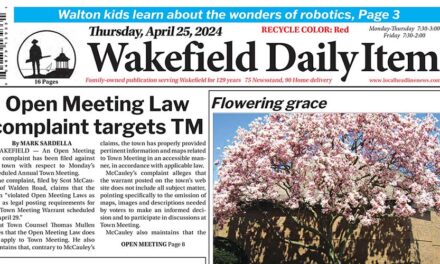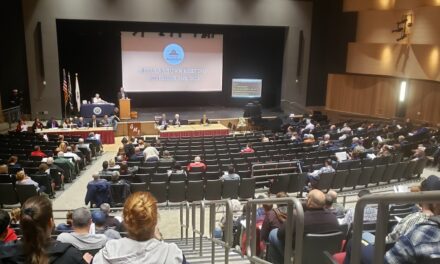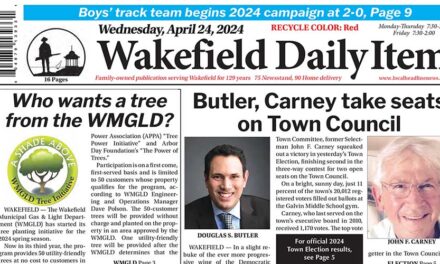By GAIL LOWE
WOBURN — Cases involving drunk driving arrests could be affected in Wakefield due to the discovery of a problem with the accuracy of some breath tests.
This week, Middlesex District Attorney Marian Ryan said that in mid-March her office was notified by the Office of Alcohol Testing that there was “an issue with breath tests given to several identified defendants in Middlesex County.”
According to a news report in the Boston Globe Thursday, 12 cases in Middlesex County are questionable and two are questionable in Suffolk County.
Today, it was reported that the Massachusetts Bar Association has called for an independent investigation into the reliability of Breathalyzer tests used to prosecute people suspected of drunken driving and urged a moratorium on introducing the tests as evidence until concerns are resolved. The call from the state’s leading confederation of attorneys emerged as prosecutors, defense attorneys and the State Police scoured case files for evidence that Breathalyzer readings were improperly calibrated. The tests can play an important role in prosecutions, often persuading motorists who have been observed driving erratically to plead guilty.
“We have notified defense attorneys in those active cases and we are in the process of contacting attorneys in identified disposed cases,” Ryan said. “Last Wednesday, April 15, we met with representatives of the State Police, and they informed us that the problem may go beyond those isolated cases. As a result of this additional information, conscious always of our obligation to ensure that the integrity of our evidence be above reproach and in an abundance of caution, I have instructed Assistant District Attorneys in my office to suspend the use of breath test results in operating under the influence cases until further notice.”
Wakefield Police Lt. Craig Calabrese said it is possible that some drunk driving cases resulting in arrest could be affected but up to this point Wakefield police have not received any further information from Ryan’s office.
Based on the initial reports of fewer than 12 potentially impacted cases in Middlesex County, police believe the impact to Wakefield cases will be minimal, if any at all.
Calabrese said there are some pending cases involving Breathalyzer results that may not be used as evidence in court until this issue is resolved.
Calabrese explained that a Breathalyzer test is given after a driver is taken into custody. It is not given as part of a field sobriety test, which may involve tests such as the ability to stand on one foot without falling, a nine-step walk and turn and reciting the alphabet correctly. The probable cause for arrest is established by the officer prior to and irrespective of a Breathalyzer test. The results are used as supporting evidence, not as the basis for a criminal charge. A reading of .08 blood alcohol level is the cut-off point at which a driver is considered under the influence or within the limits of the law to drive.
He also stated that a Breathalyzer test is optional, not mandatory when a driver is being booked at the Police Station.
In the case of a driver who may have been arrested and charged with driving while under the influence of alcohol and the Breathalyzer test may not be admissible, Calabrese affirmed that police observations, which may include noticing erratic operation, odor of alcohol, slurred speech and field sobriety tests are still valid during a trial.
Calabrese also noted that results from a portable Breathalyzer test are not admissible in court.
“Officers can use the portable Breathalyzer results as a gauge on the street,” he commented, “but not as evidence.”
“The official Breathalyzer is a stationary unit in the booking room.”
Although no machine is ever perfect, the Breathalyzer has been very reliable for many years, said Calabrese.
“The findings will not impact our patrol operations and our commitment to keeping impaired drivers off the road.”




